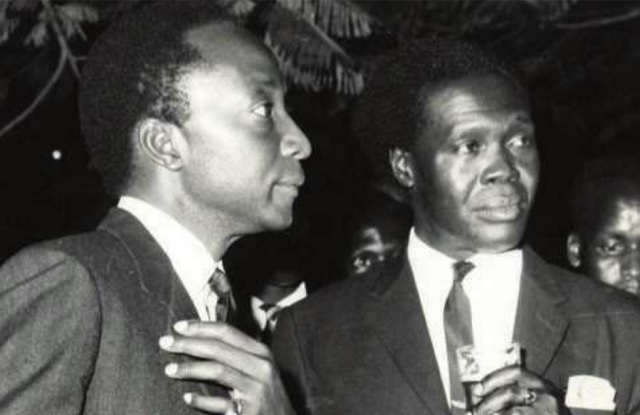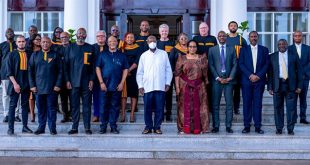
Since 1962, we have seen history repeating itself
This October 9, Uganda celebrated 54 years of Independence. It is a good point to look back and ponder what 2016 has in store for Ugandans. Looking at our nation’s history since Independence from the British colonialists in 1962 shows that years with the numeral `6’ have proved to be full of political adventure, writes Kavuma-Kaggwa. Events that have shaped out country happened in 1966, 1976, 1986, 1996, and 2006. What will 2016 bring?
When the British handed Uganda Independence on October 9, 1962 at then-Kololo Independence Square, the Queen’s Representative, the Duke of Kent, handed over the Constitutional Instruments of Independence to the Executive Prime Minister, at that time, Milton Obote. Sir Edward Mutesa II, then-Kabaka of the Buganda Kingdom and who, in 1963, was elected by Parliament to be the first President of Uganda, stood next to Milton Obote during the ceremony.
Since then, Uganda has travelled on a journey full of terrible economic and political changes. These changes made Uganda (small as it is) a unique country in Africa compared to other African countries.
Uganda is unique in such a way that in East and Central Africa, it is the only country that has had nine Presidents since Independence, compared to other African countries in the same region, which have had three or four Presidents since Independence, even when most of them achieved Independence almost at the same time in the 1960s.
What is surprising again is that five of the nine Uganda presidents “came into power unceremoniously with gunfire” and five of the nine Presidents “went out of power unceremoniously with gunfire behind them”.
The 1966 crisis
On the whole, Uganda’s political journey from Independence has been bloody and full of political upheavals, which included military coup de tats and the attack on the Buganda Palace at Mengo by troops of the first Obote government on May 24, 1966.
At the time, there was a terrible political disagreement between two Ugandan leaders who were friends at the beginning – President Edward Mutesa II and Prime Minister Milton Obote. The end result was a military attack on the Kabaka’s Palace at Mengo by Obote’s troops on that day.
The Kabaka, Sir. Edward Mutesa II, managed to escape from the Palace and fled into exile in England where he passed away in November 1969. It was later alleged but never proved that Obote’s dreaded spy network which was known as “the General Service Unit (GSU) sent a female secret agent to London and she managed to get access to the Kabaka and poisoned him during his birthday party on November 19, 1969.
After exiling the Kabaka, Obote installed himself as president. He abolished the Buganda Kingdom and other Kingdoms of Bunyoro Kitara, Toro, Ankole and Busoga and declared Uganda a Republic. He then abolished the 1962 Constitution which had made Buganda a federal state within Uganda, with some limited political power.
Parliament adopted the 1967 Republican Constitution which was popularly known as the “pigeon hole” Constitution because each Member of Parliament was told to pick his copy in his pigeon hall in Parliament. The Army occupied the Palace at Mengo for 27 years and it was named ‘Malire Barracks’ and Bulange was turned into the Army headquarters.
Obote banned all political parties except UPC – thus making Uganda a one party State. The country witnessed the banning of political parties and terrible flouting of democracy by Milton Obote. The country could not hold scheduled general elections.
Obote detained very many Baganda and non-Baganda politicians who were friendly to Buganda.
During his time, I remember one of his Langi ministers made a declaration that the “Lango Dynasty will rule for 60 years”.
Instead, Obote ruled for five years until January 25, 1971 when he was overthrown by his friend and Army Commander Idi Amin. When Idi Amin took over, on January 25, 1971, the country was gripped with excitement. He released many politicians whom Obote had detained.
But it was not long before Obote was toppled in a military coup by Gen. Idi Amin Dada. If Obote had not attacked the seat of the Kabaka of Buganda at Mengo, then the country would have had the general elections in 1967 and it could have had the next election in 1972. But the election of 1967 did not happen because of Obote and that of 1972 did not happen because of Amin.
 The Independent Uganda: You get the Truth we Pay the Price
The Independent Uganda: You get the Truth we Pay the Price




Since 1966- up today there is no peacefully hand over of power to another person alot of election reging.